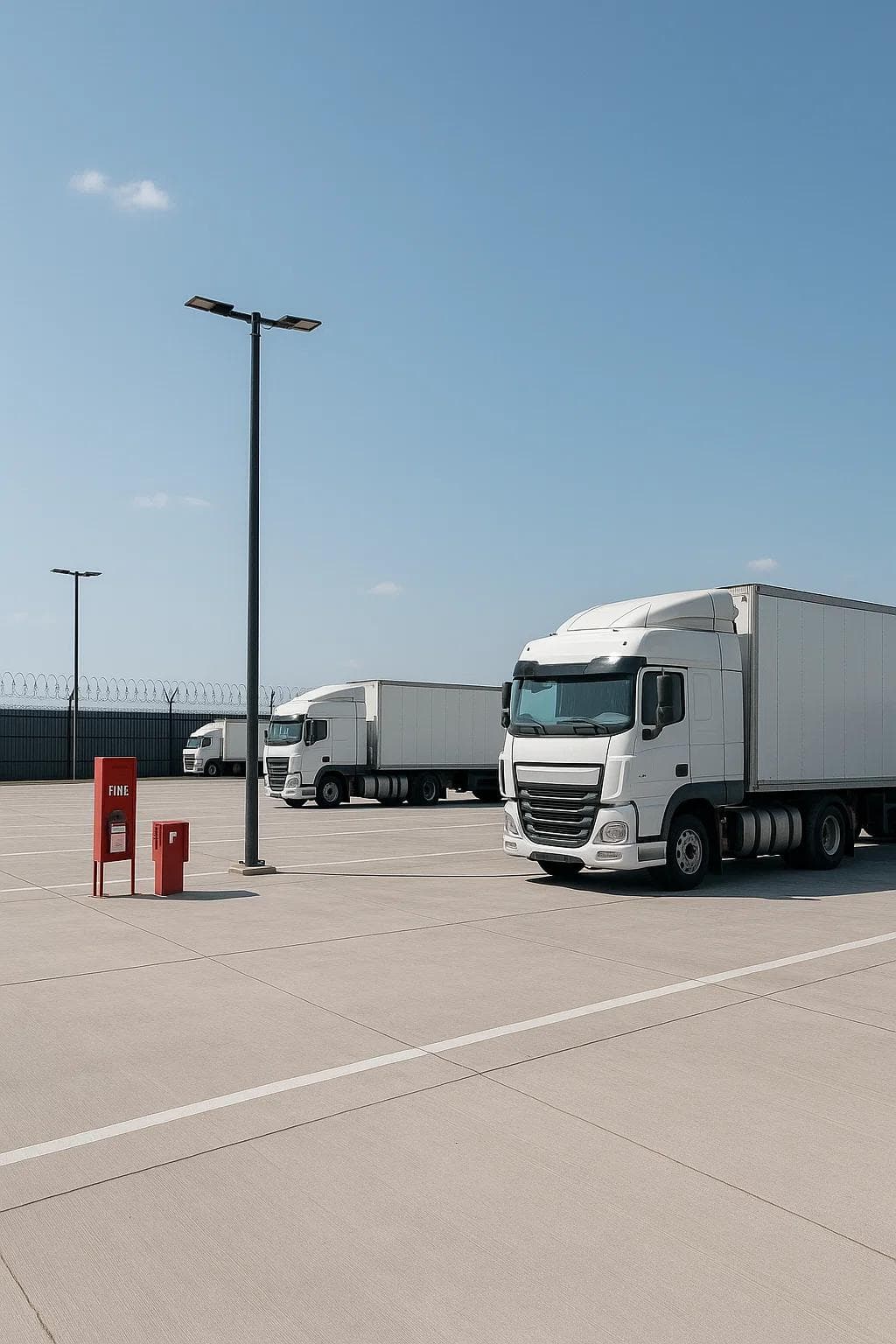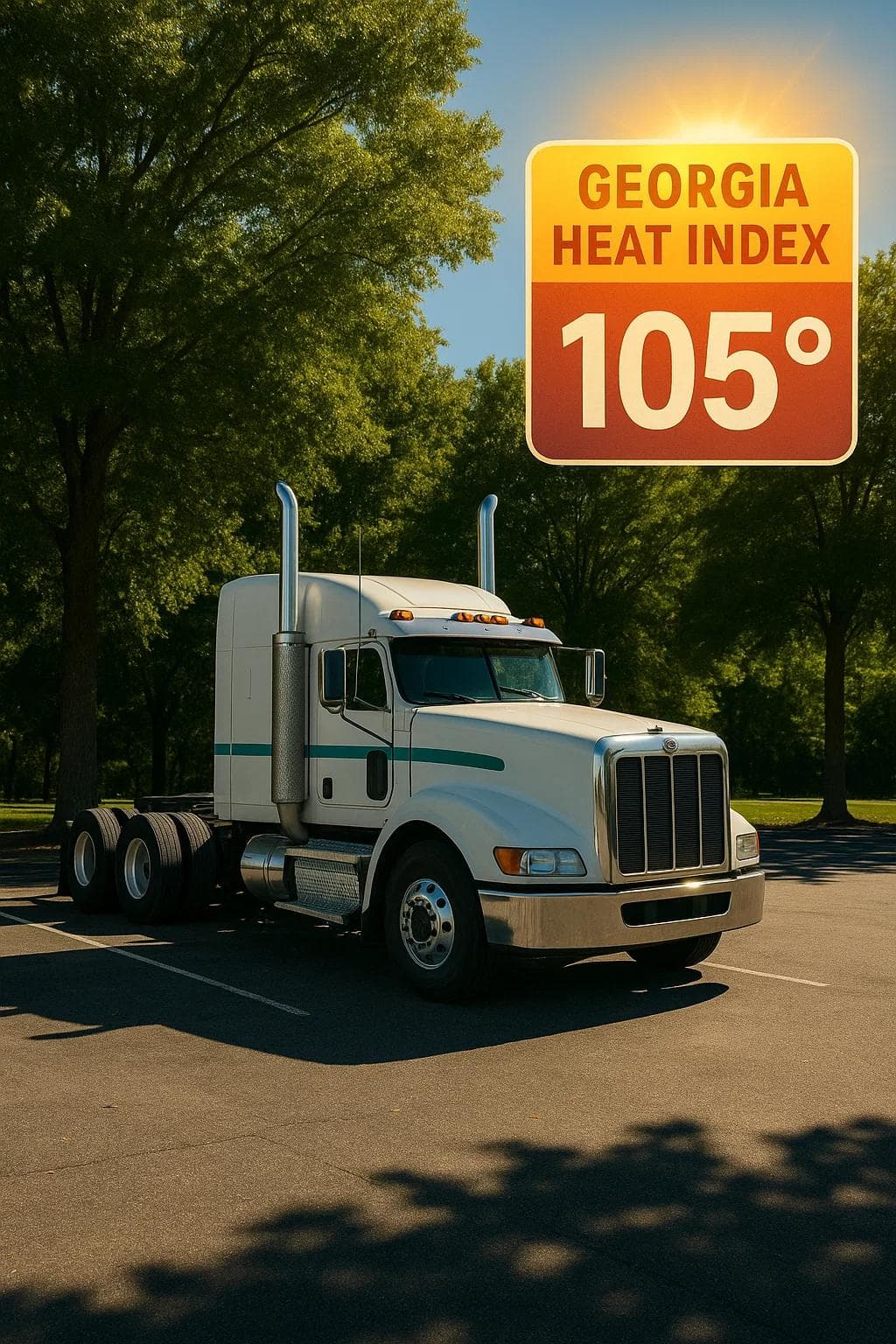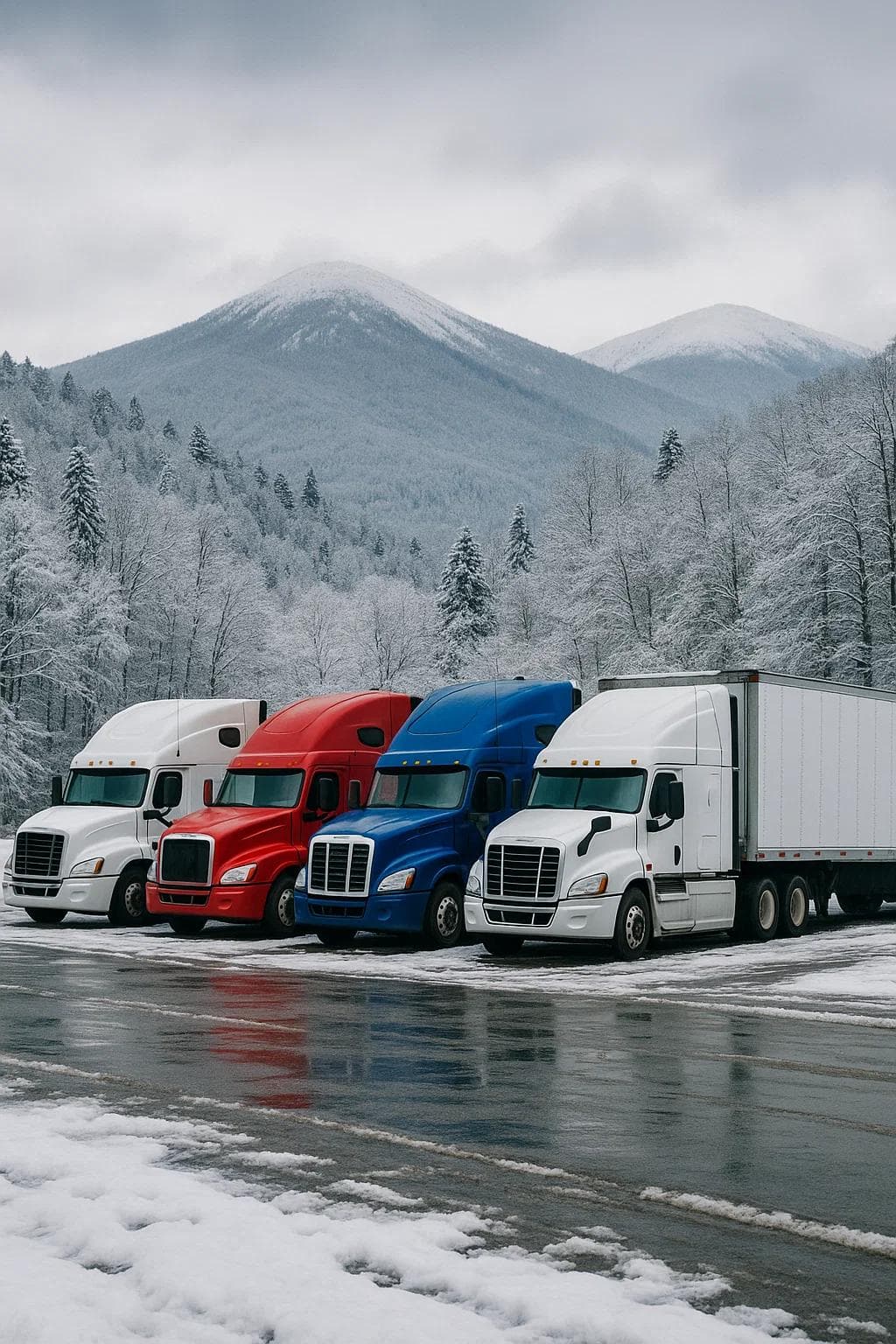
Introduction
More than 1,000 truck fires occur on U.S. highways every year, causing over $150,000 in average damages per incident — not to mention the risk to driver safety and livelihoods. Many of these fires start in parking areas, where simple preventive measures could have made the difference. Proper parking isn’t just about convenience — it’s about protecting your life, your equipment, and your career.
Insurance companies take fire incidents seriously, and even a single claim can affect your premiums or job opportunities. The good news? Fires are highly preventable through awareness, inspections, and strategic parking. Superior Truck Parking has implemented advanced fire safety measures to protect drivers and fleets, setting a high standard for the industry.
With recent fire incidents drawing regulatory attention and new technology making early detection easier than ever, there’s no better time to sharpen your fire safety knowledge and parking practices.
Understanding Truck Fire Risks
Common Fire Causes
- Tire fires (25%): Often from underinflation, brake drag, or bearing failure.
- Electrical issues (20%): Wiring problems, battery failures, and accessory overloads.
- Engine compartment (18%): Oil leaks, turbo failures, and exhaust heat.
- Cargo-related (15%): Hazmat mishandling, load shifts, and chemical reactions.
- External factors (12%): Arson, nearby fires, or fuel spills.
Parking-Specific Risks
- Extended idling and hot brakes
- APU or refrigeration unit malfunctions
- Battery charging failures
- Debris build-up beneath vehicles
- Vandalism and tampering risks
Environmental Factors
- High temperatures or low humidity
- Strong winds that spread flames
- Parking near vegetation, chemicals, or flammable ground materials
Fire Prevention Strategies
Pre-Trip Inspections
- Check tire pressure, brakes, wiring, and fluid leaks.
- Inspect APU condition, exhaust system, and extinguisher readiness.
- Maintain detailed records for repairs, inspections, and patterns.
Parking Best Practices
- Allow components to cool before shutting down.
- Choose non-flammable, debris-free surfaces with good ventilation.
- Maintain safe spacing between vehicles and clear emergency access lanes.
Technology Solutions
- Tire pressure and temperature monitoring systems
- Automatic fire suppression units and early warning alarms
- Integrated camera monitoring and alert platforms
Superior Truck Parking Fire Safety
Superior Truck Parking facilities are engineered with wide vehicle spacing, clean grounds, and a strict no-debris policy to minimize fire hazards. Regular inspections, water access points, and dedicated emergency equipment ensure rapid response to any incident.
- Fire-resistant surfaces and no vegetation zones
- Emergency lanes and strategically placed hydrants
- Trained staff, coordinated drills, and direct fire department links
With zero fire spread incidents to date, Superior Truck Parking is recognized by insurers and compliance organizations for its safety-first design.
See Superior’s Safety FeaturesEmergency Response Procedures
Immediate Actions (First 60 Seconds)
- Ensure your personal safety.
- Activate truck alarm and call 911.
- Alert facility staff immediately.
- Use extinguisher only if safe, otherwise evacuate.
Fire Suppression Basics
- Use the PASS technique and maintain distance.
- Plan escape routes and recognize extinguisher limits.
- Do not fight large or hazardous fires.
Post-Incident Actions
- Document events for official reports and insurance.
- Preserve evidence for cause investigation.
- Plan corrective measures to prevent recurrence.
Equipment and Technology
Fire Suppression Systems
Engine, cab, and trailer suppression systems cost $300–$3,000 depending on coverage, with significant ROI through risk reduction.
Detection Technology
- Heat and smoke sensors with wireless alerts
- Camera analytics for early detection
- Central monitoring with automatic response triggers
Personal Safety Equipment
- 5 lb. ABC extinguisher, fire blanket, escape tools
- First aid kit, protective gear, and communication device
Insurance and Liability
Ensure your policy covers fire damage, has adequate liability limits, and takes advantage of discounts for prevention programs. Keep training records, inspection logs, and corrective action reports to support claims and reduce premium impact.
- Prevention investments vs. downtime and repair costs
- Insurance savings and improved career security
- Reputation benefits from a clean safety record
Training and Awareness
Drivers must understand fire behavior, recognize risk factors, and practice emergency procedures. Resources include online courses, company programs, industry seminars, and technology updates.
- Promote a safety-first mindset and peer accountability
- Share incident lessons and adopt best practices
- Recognize and reward proactive safety efforts
Frequently Asked Questions
- What size extinguisher do I need? At least 5 lb. ABC-rated.
- How often should I check fire equipment? Before every trip and monthly professionally.
- Can I move a truck on fire? Only if it’s safe and fire is minor.
- What are signs of electrical fire risk? Frayed wiring, burning odor, or blown fuses.
- How does Superior prevent fire spread? Wide spacing, debris control, emergency infrastructure.
- Should I disconnect batteries when parked? Yes, if stored long-term and safe to do so.
- What’s safe idling duration? Avoid extended idling — cool down then shut off.
- Are suppression systems worth it? Yes — they prevent major loss.
- How do I report fire hazards? Notify facility staff or call 911 for imminent danger.
- What training is recommended? Fire safety and extinguisher certification courses.
Conclusion
Truck fire safety is about more than protecting equipment — it’s about saving lives, careers, and property. Proper parking practices and preventive technology reduce risk dramatically, and facilities like Superior Truck Parking lead by example.
Stay proactive with inspections, invest in detection tools, and train continuously. Fire safety is everyone’s responsibility — and it starts with where and how you park.
Protect Your Fleet with Superior SafetyReady to Reserve Your Truck Parking Spot?
Don't wait for secure parking. Reserve your spot at Superior Truck Parking today and enjoy peace of mind with our 24/7 secured facility.
Professional Parking Management: Our facility uses the therighut.com platform for seamless booking and management. This industry-leading software ensures smooth operations and the best experience for our customers.
About Superior Truck Parking
Discover updates, route guides, and driver resources from Superior Truck Parking in Calhoun, GA. Learn about secure parking solutions along I-75 designed for safety, convenience, and compliance.
Related Posts

Tornado Safety for Truckers: Emergency Parking Strategies (2025)
A complete tornado safety guide for truckers in Georgia. Learn emergency parking strategies, storm alerts, and how Superior Truck Parking keeps drivers safe.

Summer Heat Survival: Truck Parking in Georgia's Hot Season (2025)
Stay cool and safe during Georgia's 95°F+ summers. Learn expert truck parking, heat safety tips, and Superior Truck Parking advantages to beat the heat.

Winter Truck Parking in North Georgia: Preparation Guide (2025)
Prepare your truck for North Georgia’s harsh winters. Learn parking strategies, ice storm safety, and how Superior Truck Parking keeps drivers secure all season.
